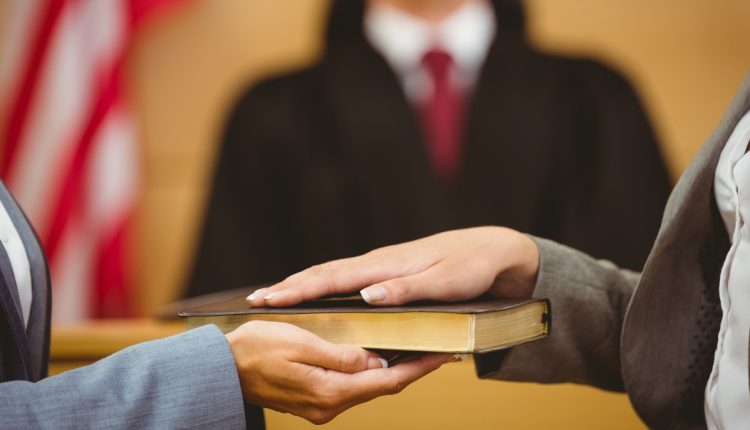What Is Witness Familiarisation?
Taking the witness stand can be challenging, In a live trial, witnesses often grow nervous or become lost in the proceedings. This is what witness familiarisation aims to fix.
Being a witness can be nerve-wracking. There’s already too much stress and trauma after witnessing or being the subject of a crime. To add to that, the lengthy court proceeding can take a toll on anyone. The impending examination won’t be easy—even if you’re on the side of truth.
In the course of a trial, cross-examination will be scheduled to allow the opposing counsel to test the reliability and consistency of a witness’ statements. During cross-examination, a witness will be asked to retell facts, events, and remember details that are relevant to the case. The legal counsel of the opposing party will interrogate and ask clarificatory questions from the witness. This seems easy in theory, but the reality is different.
Since there is a considerable amount of time in-between the happening of the incident (or crime) and the trial itself, a witness may have difficulty remembering all the exact details of the event. A legal counsel may also ask leading questions to try to confuse the witness. And if a witness is unprepared to handle pressure, his or her statements might end up being detrimental to the case.
This is where witness familiarisation comes in. Witness familiarisation is a kind of training that’s given to witnesses or persons who will testify in court hearings. Its primary goal is to prepare witnesses to avoid poor performance during court proceedings. It’s a crucial part of litigation because the quality and reliability of a witness’s testimony can make or break the outcome of a case.
This training isn’t only applicable to factual witnesses or individuals who witnessed the crimes; it can benefit expert witnesses too. These include psychologists, doctors, and other medical experts who can help shed light on forensic evidence and medical records that were gathered in a case.
The primary goal of witness familiarisation is to prepare witnesses to avoid poor performance during court proceedings.
What To Expect In A Witness Familiarisation Programme
The strength of evidence is a crucial element to win court battles. While evidence may consist of objects and documents, it is also common to call a witness who can narrate facts or tell statements that can help the jury envision what really happened in the case.
Even though a witness is truthful and in good faith, he or she may still get nervous and lost during the proceedings. This can result in consequences that negatively impact a case. This is particularly true when experienced lawyers start raising doubts about their testimonies. Some lawyers employ tactics that would infuse confusion or panic to a witness, and make them succumb to pressure that will later affect their statements.
With training from a witness familiarisation program, both factual and expert witnesses can answer and explain their testimony to the legal counsel and the court more confidently. Depending on the provider, this training is usually divided into two parts:
- The First Session: The first part of the training includes a discussion of techniques and strategies that lawyers use to intimidate witnesses. At this time, trainers guide witnesses on how these situations should be addressed. Witnesses are also taught how to give coherent and logical testimonies that would be clear and helpful for the court.
- The Second Session: During the second session, mock cross-examinations would take place. Trainers will simulate a mock proceeding where the witness will be called and cross-examined. The goal of this session is for participants to gain skills and practical knowledge on how to properly handle stress and pressure when being interrogated on the stand.
The trainers are usually composed of barristers and experienced professors in the legal profession. They are required to follow a strict set of rules to guarantee that the program doesn’t violate legal procedures and ethics.
Is Witness Familiarisation Unethical?
Witness familiarisation is lawful because its main goal is to help witnesses be informed of the processes of a court proceeding or a criminal trial. By showing and exposing witnesses to how judicial proceedings work, the witness can participate more confidently and would be more competent in giving his or her testimony.
However, ethical issues could arise in the course of the training. That’s why there are strict requirements and limitations for trainers and the people involved in the course. For example, persons who are handling the training must not be personally involved with an ongoing case that a witness is being called to.




